| |||||||||||||||||||||||||||||||
34 of the 96 seats in the United States Senate 49 seats needed for a majority | |||||||||||||||||||||||||||||||
|---|---|---|---|---|---|---|---|---|---|---|---|---|---|---|---|---|---|---|---|---|---|---|---|---|---|---|---|---|---|---|---|
| |||||||||||||||||||||||||||||||
 Results of the elections: Democratic hold Republican gain Republican hold No election | |||||||||||||||||||||||||||||||
| |||||||||||||||||||||||||||||||
The 1920 United States Senate elections were elections for the United States Senate that coincided with the presidential election of Warren G. Harding. The 32 seats of Class 3 were contested in regular elections, and special elections were held to fill vacancies. Democrat Woodrow Wilson's unpopularity allowed Republicans to win races across the country, winning ten seats from the Democrats and providing them with an overwhelming 59-to-37 majority. The Republican landslide was so vast that Democrats lost over half of the seats that were contested this year and failed to win a single race outside the South.
Since the passage of the Seventeenth Amendment, these elections were the closest when the winning party in almost every Senate election mirrored the winning party for their state in the presidential election, with Kentucky being the only Senate race to not mirror their presidential result. No other Senate election cycle in a presidential year would come close to repeating this feat until 2016, in which the result of every Senate race mirrored the corresponding state's result in the presidential election. Coincidentally, that election cycle involved the same class of Senate seats, Class 3.[1]
This is one of only five occasions where 10 or more Senate seats changed party in an election, with the other occasions being in 1932, 1946, 1958, and 1980.
As of 2024, the 59 seats held after this election cycle remains the highest number of seats that the Republican Party has held as the result of an election cycle. This number rose to 60, the highest number of seats the Republicans have ever held, after Democrat senator Josiah O. Wolcott of Delaware accepted an offer from Republican governor William D. Denney to become Chancellor of the Delaware Court of Chancery, allowing Denney to name Republican T. Coleman du Pont to replace Wolcott, a seat du Pont held until the next election, in which both a special election was held for the remainder of the term and a regular election was held as the seat was normally up then, both of which du Pont lost narrowly to Democrat Thomas F. Bayard Jr. In addition, the 22-seat majority is the largest majority that the Republicans have achieved in any election since.
Gains, losses, and holds
Retirements
Two Republicans and three Democrats retired instead of seeking re-election. One Democrat retired instead of seeking election to finish the unexpired term.
Defeats
Ten Democrats and one Republican sought re-election but lost in the primary or general election.
Post election changes
Change in composition
Before the elections
| D1 | D2 | D3 | D4 | D5 | D6 | D7 | D8 | ||
| D18 | D17 | D16 | D15 | D14 | D13 | D12 | D11 | D10 | D9 |
| D19 | D20 | D21 | D22 | D23 | D24 | D25 | D26 | D27 | D28 |
| D38 Ky. Ran |
D37 Idaho Ran |
D36 Ga. Ran |
D35 Fla. Ran |
D34 Colo. Retired |
D33 Calif. Ran |
D32 Ark. Ran |
D31 Ariz. Ran |
D30 Ala. (sp) Retired |
D29 Ala. (reg) Ran |
| D39 La. Retired |
D40 Md. Ran |
D41 Nev. Ran |
D42 N.C. Ran |
D43 Okla. Ran |
D44 Ore. Ran |
D45 S.C. Ran |
D46 S.D. Ran |
D47 Va. (sp) Ran |
R49 Wisc. Ran |
| Majority → | |||||||||
| R39 Kan. Ran |
R40 Mo. Ran |
R41 N.H. Ran |
R42 N.Y. Ran |
R43 N.D. Ran |
R44 Ohio Retired |
R45 Pa. Ran |
R46 Utah Ran |
R47 Vt. Ran |
R8 Wash. Ran |
| R38 Iowa Ran |
R37 Ind. Retired |
R36 Ill. Ran |
R35 Conn. Ran |
R34 | R33 | R32 | R31 | R30 | R29 |
| R19 | R20 | R21 | R22 | R23 | R24 | R25 | R26 | R27 | R28 |
| R18 | R17 | R16 | R15 | R14 | R13 | R12 | R11 | R10 | R9 |
| R1 | R2 | R3 | R4 | R5 | R6 | R7 | R8 | ||
Elections result
| D1 | D2 | D3 | D4 | D5 | D6 | D7 | D8 | ||
| D18 | D17 | D16 | D15 | D14 | D13 | D12 | D11 | D10 | D9 |
| D19 | D20 | D21 | D22 | D23 | D24 | D25 | D26 | D27 | D28 |
| R59 S.D. Gain |
D37 Va. (sp) Elected[lower-alpha 2] |
D36 S.C. Re-elected |
D35 N.C. Re-elected |
D34 La. Hold |
D33 Ga. Hold |
D32 Fla. Re-elected |
D31 Ark. Hold |
D30 Ala. (sp) Hold |
D29 Ala. (reg) Re-elected |
| R58 Ore. Gain |
R57 Okla. Gain |
R56 Nev. Gain |
R55 Md. Gain |
R54 Ky. Gain |
R53 Idaho Gain |
R52 Colo. Gain |
R51 Calif. Gain |
R50 Ariz. Gain |
R49 Wisc. Re-elected |
| Majority → | |||||||||
| R39 Kan. Re-elected |
R40 Mo. Re-elected |
R41 N.H. Re-elected |
R42 N.Y. Re-elected |
R43 N.D. Hold |
R44 Ohio Hold |
R45 Pa. Re-elected |
R46 Utah Re-elected |
R47 Vt. Re-elected |
R48 Wash. Re-elected |
| R38 Iowa Re-elected |
R37 Ind. Re-elected |
R36 Ill. Hold |
R35 Conn. Re-elected |
R34 | R33 | R32 | R31 | R30 | R29 |
| R19 | R20 | R21 | R22 | R23 | R24 | R25 | R26 | R27 | R28 |
| R18 | R17 | R16 | R15 | R14 | R13 | R12 | R11 | R10 | R9 |
| R1 | R2 | R3 | R4 | R5 | R6 | R7 | R8 | ||
| Key |
|
|---|
Race summary
Special elections during the 66th Congress
In these special elections, the winner was seated during 1920 or before March 4, 1921; ordered by election date.
| State | Incumbent | Results | Candidates | ||
|---|---|---|---|---|---|
| Senator | Party | Electoral history | |||
| Alabama (Class 2) |
B. B. Comer | Democratic | 1920 (Appointed) | Interim appointee retired. New senator elected November 2, 1920. Democratic hold. |
|
| Virginia (Class 2) |
Carter Glass | Democratic | 1920 (Appointed) | Interim appointee elected November 2, 1920. |
|
Elections leading to the 67th Congress
In these general elections, the winners were elected for the term beginning March 4, 1921; ordered by state.
All of the elections involved the Class 3 seats.
| State | Incumbent | Results | Candidates | ||
|---|---|---|---|---|---|
| Senator | Party | Electoral history | |||
| Alabama | Oscar Underwood | Democratic | 1914 | Incumbent re-elected. |
|
| Arizona | Marcus A. Smith | Democratic | 1912 (New state) 1914 |
Incumbent lost re-election. New senator elected. Republican gain. |
|
| Arkansas | William F. Kirby | Democratic | 1916 (special) | Incumbent lost renomination. New senator elected. Democratic hold. |
|
| California | James D. Phelan | Democratic | 1914 | Incumbent lost re-election. New senator elected. Republican gain. |
|
| Colorado | Charles S. Thomas | Democratic | 1913 (special) 1914 |
Incumbent retired. New senator elected. Republican gain. |
|
| Connecticut | Frank B. Brandegee | Republican | 1905 (special) 1909 1914 |
Incumbent re-elected. |
|
| Florida | Duncan U. Fletcher | Democratic | 1909 (Appointed) 1909 (special) 1914 |
Incumbent re-elected. |
|
| Georgia | Hoke Smith | Democratic | 1911 (special) 1914 |
Incumbent lost renomination. New senator elected. Democratic hold. |
|
| Idaho | John F. Nugent | Democratic | 1918 (Appointed) 1918 (special) |
Incumbent lost re-election. New senator elected. Republican gain. Incumbent resigned January 14, 1921 to give successor preferential seniority. Winner appointed January 15, 1921. |
|
| Illinois | Lawrence Y. Sherman | Republican | 1913 (special) 1914 |
Incumbent retired. New senator elected. Republican hold. |
|
| Indiana | James E. Watson | Republican | 1916 (special) | Incumbent re-elected. |
|
| Iowa | Albert B. Cummins | Republican | 1908 (special) 1914 |
Incumbent re-elected. |
|
| Kansas | Charles Curtis | Republican | 1907 (special) 1907 1913 (Lost) 1914 |
Incumbent re-elected. |
|
| Kentucky | J. C. W. Beckham | Democratic | 1914 | Incumbent lost re-election. New senator elected. Republican gain. |
|
| Louisiana | Edward J. Gay | Democratic | 1918 (special) | Incumbent retired. New senator elected. Democratic hold. |
|
| Maryland | John W. Smith | Democratic | 1908 (special) 1908 1914 |
Incumbent lost re-election. New senator elected. Republican gain. |
|
| Missouri | Selden P. Spencer | Republican | 1918 (special) | Incumbent re-elected. |
|
| Nevada | Charles Henderson | Democratic | 1918 (Appointed) 1918 (special) |
Incumbent lost re-election. New senator elected. Republican gain. |
|
| New Hampshire | George H. Moses | Republican | 1918 (special) | Incumbent re-elected. |
|
| New York | James W. Wadsworth Jr. | Republican | 1914 | Incumbent re-elected. |
|
| North Carolina | Lee S. Overman | Democratic | 1903 1909 1914 |
Incumbent re-elected. |
|
| North Dakota | Asle Gronna | Republican | 1911 (special) 1914 |
Incumbent lost renomination. New senator elected. Republican hold. |
|
| Ohio | Warren G. Harding | Republican | 1914 | Incumbent retired to run for U.S. President. New senator elected. Republican hold. Incumbent resigned January 13, 1921 after having won the Presidency. Winner appointed January 14, 1921. |
|
| Oklahoma | Thomas Gore | Democratic | 1907 (New state) 1909 1914 |
Incumbent lost renomination. New senator elected. Republican gain. |
|
| Oregon | George E. Chamberlain | Democratic | 1909 1914 |
Incumbent lost re-election. New senator elected. Republican gain. |
|
| Pennsylvania | Boies Penrose | Republican | 1897 1903 1909 1914 |
Incumbent re-elected. |
|
| South Carolina | Ellison D. Smith | Democratic | 1909 1914 |
Incumbent re-elected. |
|
| South Dakota | Edwin S. Johnson | Democratic | 1909 1914 |
Incumbent retired. New senator elected. Republican gain. |
|
| Utah | Reed Smoot | Republican | 1903 1909 1914 |
Incumbent re-elected. |
|
| Vermont | William P. Dillingham | Republican | 1900 (special) 1902 1908 1914 |
Incumbent re-elected. |
|
| Washington | Wesley L. Jones | Republican | 1909 1914 |
Incumbent re-elected. |
|
| Wisconsin | Irvine Lenroot | Republican | 1918 (special) | Incumbent re-elected. |
|
Closest races
Nine races had a margin of victory under 10%:
| State | Party of winner | Margin |
|---|---|---|
| Kentucky | Republican (flip) | 0.6% |
| Maryland | Republican (flip) | 4.0% |
| Nevada | Republican (flip) | 4.2% |
| Oklahoma | Republican (flip) | 6.1% |
| Wisconsin | Republican | 6.9% |
| Oregon | Republican (flip) | 7.2% |
| Idaho | Republican (flip) | 8.2% |
| California | Republican (flip) | 8.3% |
| Missouri | Republican | 9.2% |
The tipping point state is Colorado with a margin of 15.2%.
Alabama
Alabama (regular)
| |||||||||||||||||
| |||||||||||||||||
| Party | Candidate | Votes | % | |
|---|---|---|---|---|
| Democratic | Oscar Underwood (Incumbent) | 154,664 | 66.10% | |
| Republican | L. H. Reynolds | 77,337 | 33.05% | |
| Socialist | A. M. Forsman | 1,984 | 0.85% | |
| Majority | 77,327 | 33.05% | ||
| Turnout | 233,985 | |||
| Democratic hold | ||||
Alabama (special)
| |||||||||||||||||
| |||||||||||||||||
| Party | Candidate | Votes | % | |
|---|---|---|---|---|
| Democratic | J. Thomas Heflin | 160,680 | 69.27% | |
| Republican | C. P. Lunsford | 68,460 | 29.51% | |
| Socialist | W. H. Chichester | 2,820 | 1.22% | |
| Majority | 92,220 | 39.76% | ||
| Turnout | 231,960 | |||
| Democratic hold | ||||
Arizona
| |||||||||||||||||
| |||||||||||||||||
| Party | Candidate | Votes | % | |
|---|---|---|---|---|
| Republican | Ralph H. Cameron | 35,893 | 55.17% | |
| Democratic | Marcus A. Smith (Incumbent) | 29,169 | 44.83% | |
| Majority | 6,724 | 10.34% | ||
| Turnout | 65,062 | |||
| Republican gain from Democratic | ||||
Arkansas
| |||||||||||||||||
| |||||||||||||||||
| Party | Candidate | Votes | % | |
|---|---|---|---|---|
| Democratic | Thaddeus H. Caraway | 126,477 | 65.92% | |
| Republican | Charles F. Cole | 65,381 | 34.08% | |
| Majority | 61,096 | 31.84% | ||
| Turnout | 191,858 | |||
| Democratic hold | ||||
California
| |||||||||||||||||||||
 County results Shortridge: 40–50% 50–60% 60–70% 80–90% Phelan: 40–50% 50–60% 60–70% | |||||||||||||||||||||
| |||||||||||||||||||||
| Party | Candidate | Votes | % | |
|---|---|---|---|---|
| Republican | Samuel M. Shortridge | 447,835 | 49.01% | |
| Democratic | James D. Phelan (Incumbent) | 371,580 | 40.67% | |
| Prohibition | James S. Edwards | 57,768 | 6.32% | |
| Socialist | Elvina S. Beals | 36,545 | 4.00% | |
| Majority | 76,255 | 8.34% | ||
| Turnout | 913,728 | |||
| Republican gain from Democratic | ||||
Colorado
| |||||||||||||||||
| |||||||||||||||||
| Party | Candidate | Votes | % | |
|---|---|---|---|---|
| Republican | Samuel D. Nicholson | 156,577 | 54.52% | |
| Democratic | Tully Scott | 112,890 | 39.31% | |
| Farmer–Labor | G. F. Stevens | 9,041 | 3.15% | |
| National | Charles S. Thomas (incumbent) | 8,665 | 3.02% | |
| Majority | 43,687 | 15.21% | ||
| Turnout | 287,173 | |||
| Republican hold | ||||
Connecticut
| |||||||||||||||||
| |||||||||||||||||
| Party | Candidate | Votes | % | |
|---|---|---|---|---|
| Republican | Frank B. Brandegee (Incumbent) | 216,792 | 59.36% | |
| Democratic | Augustine Lonergan | 131,824 | 36.10% | |
| Socialist | Martin F. Plunkett | 10,118 | 2.77% | |
| Prohibition | Emil L. G. Hohenthal | 2,892 | 0.79% | |
| Farmer–Labor | Josephine B. Bennett | 2,076 | 0.57% | |
| Socialist Labor | Charles J. Backofen | 1,486 | 0.41% | |
| Majority | 84,968 | 23.26% | ||
| Turnout | 365,188 | |||
| Republican hold | ||||
Florida
| |||||||||||||||||
| |||||||||||||||||
| Party | Candidate | Votes | % | |
|---|---|---|---|---|
| Democratic | Duncan U. Fletcher (Incumbent) | 98,957 | 69.50% | |
| Republican | John Moses Cheney | 37,065 | 26.03% | |
| Socialist | M. J. Martin | 3,525 | 2.48% | |
| White Republican | G. A. Klock | 2,847 | 2.00% | |
| Majority | 61,892 | 43.47% | ||
| Turnout | 142,394 | |||
| Democratic hold | ||||
Georgia
| |||||||||||||||||
| |||||||||||||||||
| Party | Candidate | Votes | % | |
|---|---|---|---|---|
| Democratic | Thomas E. Watson | 124,630 | 94.90% | |
| Pro-League Independent | Harry S. Edwards | 6,700 | 5.10% | |
| Majority | 117930 | 89.80% | ||
| Turnout | 131330 | |||
| Democratic hold | ||||
Idaho
| |||||||||||||||||
| |||||||||||||||||
| Party | Candidate | Votes | % | |
|---|---|---|---|---|
| Republican | Frank R. Gooding | 75,985 | 54.08% | |
| Democratic | John F. Nugent (Incumbent) | 64,513 | 45.92% | |
| Majority | 11,472 | 8.16% | ||
| Turnout | 140,498 | |||
| Republican gain from Democratic | ||||
Illinois
| |||||||||||||||||
| |||||||||||||||||
| Party | Candidate | Votes | % | |
|---|---|---|---|---|
| Republican | William B. McKinley | 1,381,384 | 66.83% | |
| Democratic | Peter A. Waller | 554,372 | 26.82% | |
| Socialist | Gustave T. Fraenckel | 66,463 | 3.22% | |
| Farmer–Labor | John Fitzpatrick | 50,749 | 2.46% | |
| Prohibition | Frank B. Vennum | 10,186 | 0.49% | |
| Socialist Labor | Joseph B. Moody | 3,107 | 0.15% | |
| Single Tax | George Dodd Carrington Jr. | 784 | 0.04% | |
| Majority | 827,012 | 40.01% | ||
| Turnout | 2,067,045 | |||
| Republican hold | ||||
Indiana
| |||||||||||||||||
 County results Watson: 40–50% 50–60% 60–70% 70–80% Taggart: 40–50% 50–60% 60–70% | |||||||||||||||||
| |||||||||||||||||
| Party | Candidate | Votes | % | |
|---|---|---|---|---|
| Republican | James Eli Watson (Incumbent) | 681,851 | 54.57% | |
| Democratic | Thomas Taggart | 514,191 | 41.15% | |
| Socialist | Francis M. Wampler | 23,395 | 1.87% | |
| Farmer–Labor | Francis J. Dillon | 16,804 | 1.34% | |
| Prohibition | Culla Bayhinger | 13,323 | 1.07% | |
| Majority | 167,660 | 13.42% | ||
| Turnout | 1,249,564 | |||
| Republican hold | ||||
Iowa
| |||||||||||||||||
| |||||||||||||||||
| Party | Candidate | Votes | % | |
|---|---|---|---|---|
| Republican | Albert B. Cummins (Incumbent) | 528,499 | 61.42% | |
| Democratic | Claude R. Porter | 322,015 | 37.42% | |
| Farmer–Labor | H. W. Cowles | 9,020 | 1.05% | |
| Socialist Labor | Arthur S. Dowler | 933 | 0.11% | |
| Majority | 206,484 | 24.00% | ||
| Turnout | 860,467 | |||
| Republican hold | ||||
Kansas
| |||||||||||||||||
| |||||||||||||||||
| Party | Candidate | Votes | % | |
|---|---|---|---|---|
| Republican | Charles Curtis (Incumbent) | 327,072 | 64.01% | |
| Democratic | George H. Hodges | 170,443 | 33.36% | |
| Socialist | Dan Beedy | 13,417 | 2.63% | |
| Majority | 156,629 | 30.65% | ||
| Turnout | 510,932 | |||
| Republican hold | ||||
Kentucky
| |||||||||||||||||
 County results Ernst: 50–60% 60–70% 70–80% 80–90% >90% Beckham: 50–60% 60–70% 70–80% 80–90% | |||||||||||||||||
| |||||||||||||||||
| Party | Candidate | Votes | % | |
|---|---|---|---|---|
| Republican | Richard P. Ernst | 454,226 | 50.28% | |
| Democratic | J. C. W. Beckham (Incumbent) | 449,244 | 49.72% | |
| Majority | 4,982 | 0.56% | ||
| Turnout | 903,470 | |||
| Republican gain from Democratic | ||||
Louisiana
| |||||||||||||||||||||
| |||||||||||||||||||||
| |||||||||||||||||||||
| Party | Candidate | Votes | % | |
|---|---|---|---|---|
| Democratic | Edwin S. Broussard | 49,718 | 45.74% | |
| Democratic | Jared Y. Sanders Sr. | 43,425 | 39.95% | |
| Democratic | Donelson Caffery III | 15,563 | 14.32% | |
| Total votes | 108,706 | 100.00% | ||
| Party | Candidate | Votes | % | |
|---|---|---|---|---|
| Democratic | Edwin S. Broussard | 94,944 | 100.00% | |
| Democratic hold | ||||
Maryland
| |||||||||||||||||||||
| |||||||||||||||||||||
| Party | Candidate | Votes | % | |
|---|---|---|---|---|
| Republican | Ovington Weller | 184,999 | 47.29% | |
| Democratic | John Walter Smith (Incumbent) | 169,200 | 43.25% | |
| Independent | G. D. Iverson Jr. | 21,345 | 5.46% | |
| Socialist | William A. Toole | 6,559 | 1.68% | |
| Independent | William A. Hawkins | 6,538 | 1.67% | |
| Labor | Frank N. H. Lang | 2,569 | 0.66% | |
| Majority | 15,799 | 4.04% | ||
| Turnout | 391,210 | |||
| Republican gain from Democratic | ||||
Missouri
| |||||||||||||||||
 County results Spencer: 40–50% 50–60% 60–70% 70–80% 80–90% Long: 40–50% 50–60% 60–70% 70–80% 80–90% | |||||||||||||||||
| |||||||||||||||||
| Party | Candidate | Votes | % | |
|---|---|---|---|---|
| Republican | Selden P. Spencer (Incumbent) | 711,161 | 53.65% | |
| Democratic | Breckinridge Long | 589,498 | 44.47% | |
| Socialist | Elias F. Hodges | 20,002 | 1.51% | |
| Farmer–Worker | W. J. Mallett | 3,158 | 0.24% | |
| Socialist Labor | Andrew Trudell | 1,675 | 0.13% | |
| Majority | 121,663 | 9.18% | ||
| Turnout | 1,325,494 | |||
| Republican hold | ||||
Nevada
| |||||||||||||||||||||
| |||||||||||||||||||||
| Party | Candidate | Votes | % | |
|---|---|---|---|---|
| Republican | Tasker Oddie | 11,550 | 42.11% | |
| Democratic | Charles B. Henderson (Incumbent) | 10,402 | 37.93% | |
| Independent | Anne Henrietta Martin | 4,981 | 18.16% | |
| Socialist | James Jepson | 494 | 1.80% | |
| Majority | 1148 | 5.18% | ||
| Turnout | 27,427 | |||
| Republican gain from Democratic | ||||
New Hampshire
| |||||||||||||||||
| |||||||||||||||||
| Party | Candidate | Votes | % | |
|---|---|---|---|---|
| Republican | George H. Moses (Incumbent) | 90,173 | 57.72% | |
| Democratic | Raymond Bartlett Stevens | 65,038 | 41.63% | |
| Socialist | William H. Wilkins | 1,004 | 0.64% | |
| Majority | 25135 | 16.09% | ||
| Turnout | 156,215 | |||
| Republican hold | ||||
New York
| |||||||||||||||||||||||||||||||||||||
| |||||||||||||||||||||||||||||||||||||
| Party | Candidate | Votes | % | |
|---|---|---|---|---|
| Republican | James Wolcott Wadsworth Jr. (Incumbent) | 1,434,393 | 52.36% | |
| Democratic | Harry C. Walker | 901,310 | 32.90% | |
| Socialist | Jacob Panken | 208,155 | 7.60% | |
| Prohibition | Ella A. Boole | 159,623 | 5.83% | |
| Farmer–Labor | Rose Schneiderman | 27,934 | 1.02% | |
| Socialist Labor | Harry Carlson | 7,822 | 0.29% | |
| Majority | 533,083 | 19.46% | ||
| Turnout | 2,739,237 | |||
| Republican hold | ||||
North Carolina
| |||||||||||||||||
| |||||||||||||||||
| Party | Candidate | Votes | % | |
|---|---|---|---|---|
| Democratic | Lee Slater Overman (Incumbent) | 310,504 | 57.52% | |
| Republican | A. E. Holton | 229,343 | 42.48% | |
| Majority | 81,161 | 15.04% | ||
| Turnout | 539,847 | |||
| Democratic hold | ||||
North Dakota
| |||||||||||||||||
| |||||||||||||||||
| Party | Candidate | Votes | % | |
|---|---|---|---|---|
| Republican | Edwin F. Ladd | 130,614 | 59.61% | |
| Democratic | H. H. Perry | 88,495 | 40.39% | |
| Majority | 42,109 | 19.22% | ||
| Turnout | 219,109 | |||
| Republican hold | ||||
Ohio
| |||||||||||||||||
| |||||||||||||||||
| Party | Candidate | Votes | % | |
|---|---|---|---|---|
| Republican | Frank B. Willis | 1,134,953 | 59.10% | |
| Democratic | William Alexander Julian | 782,650 | 40.76% | |
| Independent | Henry B. Strong | 2,647 | 0.14% | |
| Majority | 352,303 | 18.34% | ||
| Turnout | 1,920,250 | |||
| Republican hold | ||||
Oklahoma
| |||||||||||||||||
| |||||||||||||||||
| Party | Candidate | Votes | % | |
|---|---|---|---|---|
| Republican | John W. Harreld | 247,719 | 50.64% | |
| Democratic | Scott Ferris | 217,783 | 44.52% | |
| Socialist | A. A. Bagwell | 23,664 | 4.84% | |
| Majority | 29,936 | 6.12% | ||
| Turnout | 489,166 | |||
| Republican gain from Democratic | ||||
Oregon
| |||||||||||||||||
| |||||||||||||||||
| Party | Candidate | Votes | % | |
|---|---|---|---|---|
| Republican | Robert N. Stanfield | 116,696 | 50.73% | |
| Democratic | George Earle Chamberlain (Incumbent) | 100,133 | 43.53% | |
| Socialist | Albert Slaughter | 6,949 | 3.02% | |
| Independent | Thomas A. Hayes | 4,456 | 1.94% | |
| Industrial Labor | C. H. Svenson | 1,782 | 0.77% | |
| Majority | 16,563 | 7.20% | ||
| Turnout | 230,016 | |||
| Republican gain from Democratic | ||||
Pennsylvania
| |||||||||||||||||||||
 County results Penrose: 40–50% 50–60% 60–70% 70–80% Farrell: 40–50% 50–60% | |||||||||||||||||||||
| |||||||||||||||||||||
| Party | Candidate | Votes | % | |
|---|---|---|---|---|
| Republican | Boies Penrose (Incumbent) | 1,067,989 | 59.94% | |
| Democratic | John A. Farrell | 484,362 | 27.18% | |
| Prohibition | Leah Cobb Marion | 132,610 | 7.44% | |
| Socialist | Birch Wilson | 67,316 | 3.78% | |
| Labor | Robert J. Wheeler | 27,401 | 1.54% | |
| Single Tax | Joseph E. Jennings | 2,110 | 0.12% | |
| None | Scattering | 55 | 0.00% | |
| Majority | 583,627 | 32.76% | ||
| Turnout | 1,781,843 | |||
| Republican hold | ||||
South Carolina
| |||||||||||||||||
| |||||||||||||||||
| Democratic Primary Runoff | |||
|---|---|---|---|
| Candidate | Votes | % | ±% |
| Ellison D. Smith | 65,880 | 60.7 | +12.0 |
| George Warren | 42,735 | 39.3 | +8.5 |
| Party | Candidate | Votes | % | |
|---|---|---|---|---|
| Democratic | Ellison D. Smith (Incumbent) | 64,388 | 100.00% | |
| Independent | George Warren | 1 | 0.00% | |
| Majority | 64387 | 100.00% | ||
| Turnout | 64389 | |||
| Democratic hold | ||||
South Dakota
| |||||||||||||||||||||||||||||||||||||
| |||||||||||||||||||||||||||||||||||||
| Party | Candidate | Votes | % | |
|---|---|---|---|---|
| Republican | Peter Norbeck | 92,267 | 50.10% | |
| Independent | Tom Ayres | 44,309 | 24.06% | |
| Democratic | U. S. G. Cherry | 36,833 | 20.00% | |
| Independent | Richard Olsen Richards | 10,032 | 5.45% | |
| Independent | L. J. Manbeck | 738 | 0.40% | |
| Majority | 47,958 | 26.04% | ||
| Turnout | 184,179 | |||
| Republican hold | ||||
Utah
| |||||||||||||||||
| |||||||||||||||||
| Party | Candidate | Votes | % | |
|---|---|---|---|---|
| Republican | Reed Smoot (Incumbent) | 82,566 | 56.57% | |
| Democratic | Milton H. Welling | 56,280 | 38.56% | |
| Socialist | J. Alex Beven | 7,112 | 4.87% | |
| Majority | 26,286 | 18.01% | ||
| Turnout | 145,958 | |||
| Republican hold | ||||
Vermont
| |||||||||||||||||
| |||||||||||||||||
| Party | Candidate | Votes | % | |
|---|---|---|---|---|
| Republican | William P. Dillingham (Incumbent) | 69,650 | 78.02% | |
| Democratic | Howard E. Shaw | 19,580 | 21.93% | |
| None | Scattering | 41 | 0.05% | |
| Majority | 50,070 | 56.09% | ||
| Total votes | 89,271 | |||
| Republican hold | ||||
Virginia (special)
| |||||||||||||||||
| |||||||||||||||||
| Party | Candidate | Votes | % | |
|---|---|---|---|---|
| Democratic | Carter Glass (Incumbent) | 184,646 | 91.31% | |
| Republican | J. R. Pollard | 17,576 | 8.69% | |
| Majority | 167070 | 82.62% | ||
| Total votes | 202,222 | |||
| Democratic hold | ||||
Washington
| |||||||||||||||||||||
 County results Jones: 30–40% 40–50% 50–60% 60–70% | |||||||||||||||||||||
| |||||||||||||||||||||
| Party | Candidate | Votes | % | |
|---|---|---|---|---|
| Republican | Wesley Livsey Jones (Incumbent) | 217,069 | 56.40% | |
| Farmer–Labor | Clemens J. France | 99,309 | 25.80% | |
| Democratic | George F. Cotterill | 68,488 | 17.80% | |
| Majority | 117,760 | 30.60% | ||
| Turnout | 384,866 | |||
| Republican hold | ||||
Wisconsin
| |||||||||||||||||||||||||||||||||||||
 County results Lenroot: 30–40% 40–50% 50–60% 60–70% 70–80% Thompson: 30–40% 40–50% 50–60% 60–70% Weber: 20–30% | |||||||||||||||||||||||||||||||||||||
| |||||||||||||||||||||||||||||||||||||
| Party | Candidate | Votes | % | |
|---|---|---|---|---|
| Republican | Irvine Lenroot (Incumbent) | 281,576 | 41.58% | |
| Independent | James Thompson | 235,029 | 34.71% | |
| Democratic | Paul Samuel Reinsch | 89,265 | 13.18% | |
| Socialist | Frank J. Weber | 66,172 | 9.77% | |
| Prohibition | Clyde D. Mead | 5,107 | 0.75% | |
| None | Scattering | 3 | 0.00% | |
| Majority | 46,547 | 6.87% | ||
| Turnout | 677,152 | |||
| Republican hold | ||||
See also
Notes
- 1 2 3 as Republican Conference Chairman and unofficial majority leader
- ↑ Appointee elected
References
- ↑ Enten, Harry (November 10, 2016). "There Were No Purple* States On Tuesday". FiveThirtyEight. Retrieved August 19, 2020.
- ↑ Johnson, Willis Fletcher; Brown, Roscoe Conkling Ensign; Spooner, Walter Whipple; Holly, Willis (1922). History of the State of New York, Political and Governmental. The Syracuse Press. pp. 347–348, 350.
- 1 2 3 4 5 6 7 8 9 10 11 12 13 14 15 16 17 18 19 20 21 22 23 24 25 26 27 28 29 30 31 32 33 "Statistics of the Congressional Election of November 2, 1920" (PDF). Clerk.house.gov. Retrieved August 21, 2019.
- ↑ Compilation of Primary Election Returns of the Democratic Party. Baton Rouge: Hamires-Jones Printing Company. 1920. pp. 88–89. Retrieved June 19, 2022 – via HathiTrust.
- Byrd, Robert C. (October 1, 1993). Wolff, Wendy (ed.). The Senate, 1789-1989: Historical Statistics, 1789-1992. United States Senate Historical Office (volume 4 Bicentennial ed.). Washington, D.C.: U.S. Government Printing Office. ISBN 9780160632563 – via Google Books.



.jpg.webp)



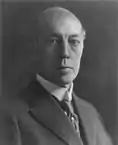




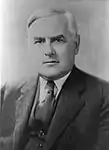

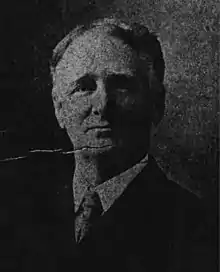

.jpg.webp)
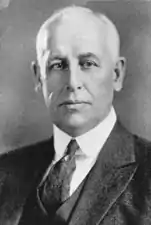
.jpg.webp)
.jpg.webp)
.jpg.webp)





.jpg.webp)

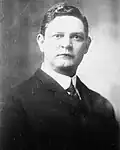



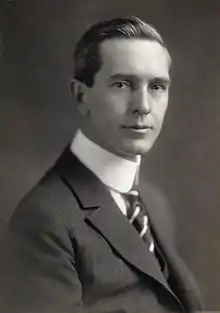






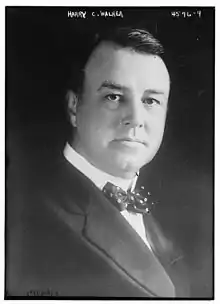
.jpg.webp)

.jpg.webp)
.jpg.webp)


.jpg.webp)





.jpg.webp)




.jpg.webp)

.jpg.webp)
.jpg.webp)

